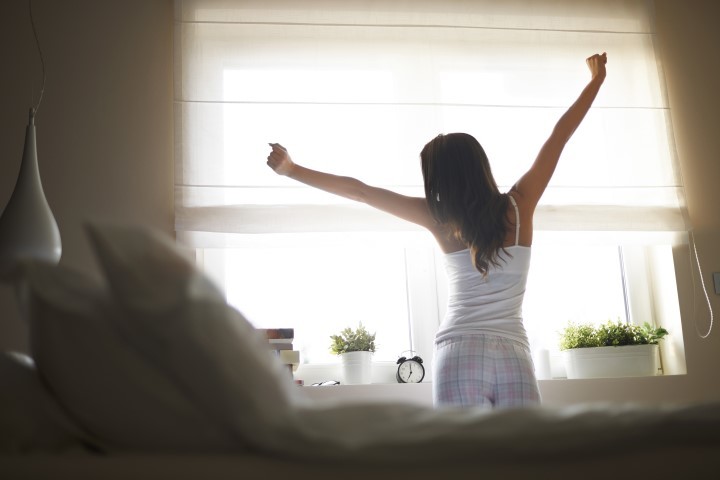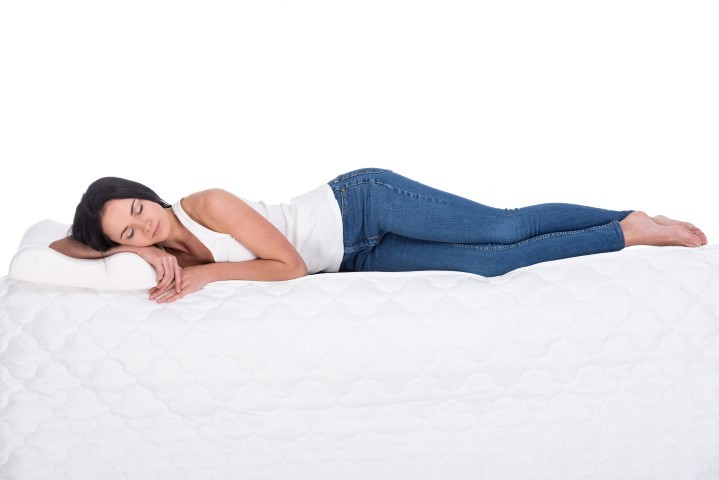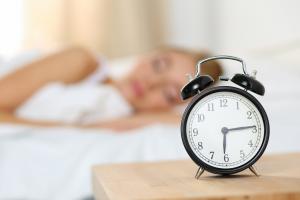Lifestyle Article Information
- LIFESTYLE ARTICLE_POSTED_BY: Yuriy Ilkovych
- LIFESTYLE ARTICLE_POSTED_ON: Mar 23, 2016
- Views : 2223
- Likes : 2
- Category : Sleep Better
- Description :
Overview
Sleep Hygiene
Do you wake up frequently at night? Do you take long to fall back to sleep? Do you wake up feeling tired? Are you sleepy through the day?
Here’s is the trick, a help, a promise for a quality sleep and that’s sleep hygiene. “Sleep hygiene” is a group of easy, economical and most natural practices or behavior modifications aimed at helping you achieve your goal “The quality sleep”.
Here we go:
1. Follow a routine:
- Setting a routine is the most basic and most important aspect of sleep hygiene. We need to set our biologic clock. Once it is set, it will direct us to sleep and it will wake us up on time, every time.
- It’s said that “Early to bed, early to rise, makes us wise”. Go to bed latest by 11Pm. Going to bed as early as 8 PM helps in nourishing a flawless skin.
- Keep an hour’s cushion. If you wish to sleep for 7 hours a day and plan to wake up by 6 Am, schedule your sleep at 10 PM. This cushion will make up for 7 hours of sleep in case you take a little long to fall asleep.
- Sleep and Wake up at the same time every day even on holidays. If you plan to relax your schedule on weekends the biologic clock is bound to be disrupted.
2. Regular Exercise:
Physical exercises such as walking, jogging, work outs and outdoor games help us with a sound sleep. But, they should be preferably placed in the morning hours so that they help the sleep cycle.
Avoid rigorous physical activities few hours before sleep. They are more likely to keep you active and awake.
3. Go for a sun bath!Good amount of exposure to sunlight helps you sleep at night! This is more evident especially in older adults who have less sun exposure.
4. Avoid naps in evening hours
Taking naps in evening hours will consume some of your sleep quota and is bound to disrupt the night sleep.
5. Avoid stimulants
- Coffee, tea or any other beverage containing caffeine or nicotine are known stimulants. They are known to keep you awake.
Such beverages should be avoided in the evening hours or at least few hours before sleep.
Remember: Chocolates contain caffeine.
- Avoid alcohol at least 6 hours before sleep. Some people do consume alcohol thinking that it will help them sleep. But alcohol only makes way for short and light sleep. It is more likely to wake you up after few hours and may keep you awake for the rest of night.
6. Avoid overeating and under eating…Under eating may wake you due to hunger pangs, whereas overeating is more likely to delay sleep.
Also avoid new food experiments before bedtime. It’s more likely to keep you awake.
7. Watch the fluid intake!
Avoid consuming excess fluids, few hours before going to bed. It might wake you up in between. On the other hand, drink enough water so that you don’t wake up thirsty.
8. Cross check medicines?Certain medicines are known to disrupt sleep. Some of the over the counter/ herbal products used for cold or flu fall in this category. Check with your physician if any of the medicines you are taking is interfering with your sleep.
9. Sleep when you are sleepy!
Don’t spend too much time awake in the bed. It should be limited to 20 minutes. Get up and do something which makes you drowse, may be listening to a soothing music with your eyes closed. Once you feel sleepy, go back to bed.
10. Bed is for sleep only!
Bed should be used only to sleep. Don’t use it for anything else like an office work or watching TV or any other activity which is likely to arouse interest and keep you awake.
11. Make the surrounding conducive…Make the bedroom environment conducive to sleep. If possible, the bedroom should be designated for sleep only.
- Use heavy shaded curtains
- Keep the light dull
- Cool the temperature
- Arrange a soft mattress and a cozy blanket
- A wall clock may not be needed in the bedroom. It will prompt you to look at it often and will delay your sleep.
- If you are using an alarm clock, face it away from you
- Use an eye mask if needed

Most important!
Sleep hygiene steps will bring in a gradual improvement. The most important thing is to follow up. For quick and sustained results follow up is mandatory, for any goal.
You can also try certain sleep relaxation techniques. Consult your physician for a personalized guidance.
